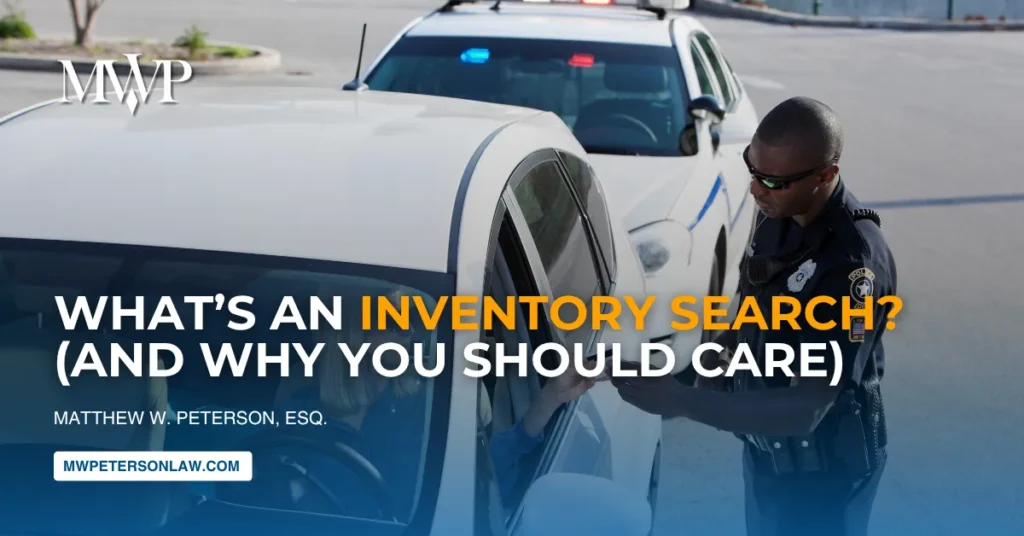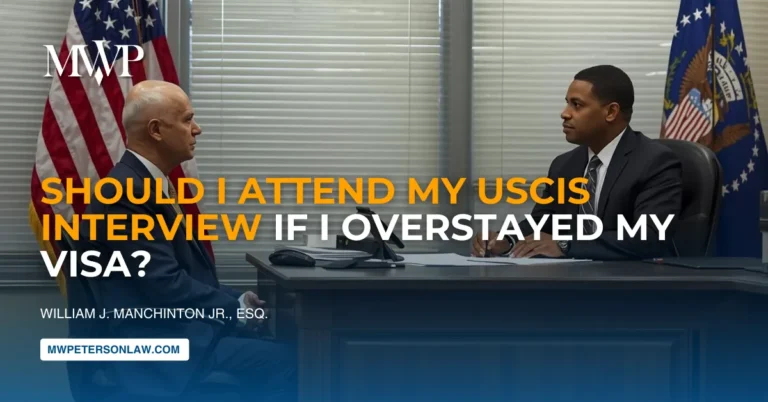Many people are surprised to learn that police can search your car even when they have no probable cause that there’s anything illegal inside. This is one of the most common exceptions to the warrant requirement for cars and one of the most frequent ways vehicles get searched in Massachusetts. It’s called an inventory search, and police can conduct it without probable cause and without a warrant.
What Is an Inventory Search?
An inventory search is supposed to be an administrative procedure. When police are towing a car, they document the items inside it to protect themselves and others from accusations of theft. The idea is that when police take custody of your vehicle, they want to make sure all your belongings are accounted for. This way, you can’t come back later and claim, “I had $15,000 in gold bars in there – where did they go?”
However, inventory searches are commonly abused and misused in Massachusetts law.
When Can Police Impound Your Car?
Police can impound your car in several situations:
- If the car’s registration has expired or is invalid
- If the car itself is not legally roadworthy
- If there’s no licensed driver available, such as when your driver’s license is suspended
- If the car was stopped for having something illegal, like a lack of proper registration
Something as simple as not paying your excise taxes, not paying tolls, or not renewing your driver’s license could mean your car gets impounded. When police impound a vehicle, they claim they need to search through it and document everything inside according to their inventory policy.
The Problem with Inventory Searches
Unfortunately, inventory searches often become just another excuse for police to rifle through your car and try to find anything that could be criminal. What’s supposed to be a simple administrative task frequently turns into a fishing expedition for evidence.
In inventory searches, police claim that when they search a car after it’s been impounded, this could be based on the car having something illegal (such as a lack of registration) or because the driver was arrested and there’s no other licensed driver available.
How We Challenge Inventory Searches
If you’re facing charges based on evidence found during an inventory search, it’s critical to know that these searches can be challenged. After taking a case, we gather all evidence related to it, including body-worn camera footage from the officers involved.
For an inventory search to be legal, two key requirements must be met:
- The initial impoundment must be legal. Police need a valid reason to tow your car in the first place.
- The inventory must be performed for non-investigative purposes. It has to be a genuine administrative process, not a way to search for evidence of a crime.
Real Results
Our Boston criminal defense attorney successfully challenged inventory searches throughout Massachusetts and got firearms, drugs, and other evidence suppressed because of faulty inventory searches. When police don’t follow proper procedures, courts have the power to exclude any evidence they find.
Body camera footage often reveals the truth about what really happened during these searches. Sometimes the evidence shows that police were actually conducting an investigative search disguised as an inventory procedure.
Your Rights Matter
Remember that you have constitutional protections against unreasonable searches and seizures. Just because police claim they’re conducting an “inventory search” doesn’t automatically make their actions legal.
If you or someone you know is facing criminal charges based on evidence found during an inventory search, don’t assume the police followed proper procedures. These violations happen more often than many people realize, and challenging improper police conduct protects everyone’s rights under the law.
Every case has unique facts and circumstances, which is why having experienced legal representation matters. What appears to be a routine police procedure might actually be an illegal search that violates your constitutional rights.
Get Help
If you’re facing charges involving an inventory search, call us today. The Law Office of Matthew W. Peterson understands how to examine the specific details of your case and determine whether police followed proper procedures. Don’t let an illegal search result in criminal charges that could have been prevented.
The evidence police claim to have found in your car might not be admissible in court if they didn’t follow the law when they searched it.











